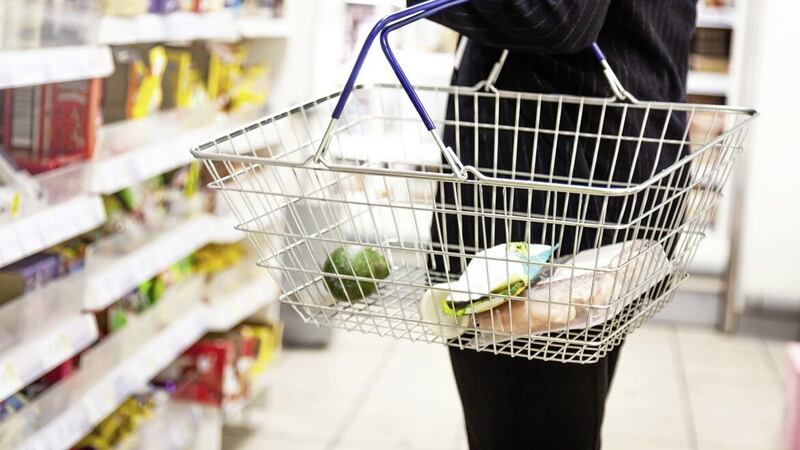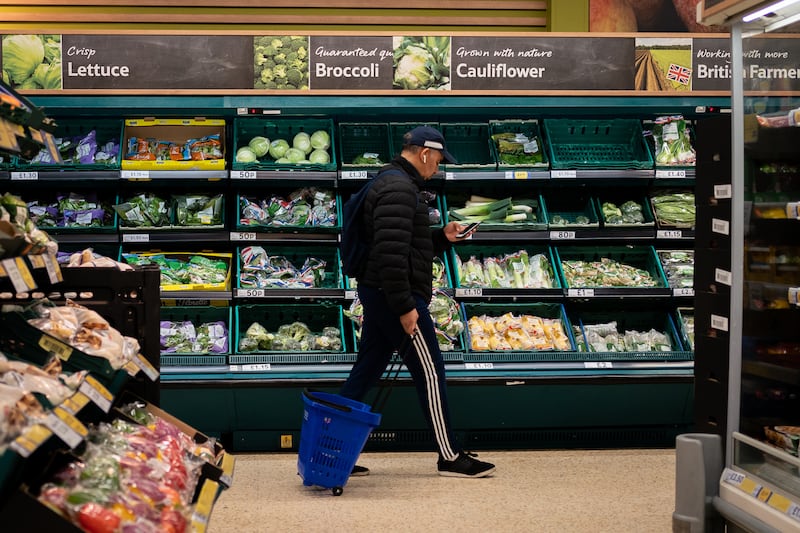HEIGHTENED food prices, which have seen a 15 per cent rise in the past 12 months, could be here to stay.
The price of every day essentials such as milk and butter rose overall by 14.5 per cent last month, the largest annual rise in more than 40 years, according to the Office for National Statistics.
Among the items which now cost more is low fat milk which is now 42 per cent more expensive, butter which has jumped by 28 per cent and cheese, which has risen by 23 per cent.
Other items which saw a large increase include pasta and eggs, which both rose by 22 per cent and potatoes, which are almost 20 per cent more expensive.
Ready meals have also risen by almost 20 per cent while poultry has risen by 17 per cent.
Richard Ramsey, Ulster Bank’s chief economist, said high energy costs, global supply issues and the war in Ukraine have all played a role.
"Energy prices feed into the cost of production and fertiliser costs also," he said.
"Because Russia and Ukraine are some of the key producers of fertilisers and various chemicals linked to that, we have problems.
"Earlier in the year, (with) Ukraine being the bread basket of Europe, you had the wheat and flour side and because of the problems there, big issues fed through on that front. Also, you had unfavourable weather conditions for harvests. Extreme weather conditions across Europe led to poor harvests.
"Things like meat as well, energy costs going into feed, all those input costs, inflation feeds through onto the cost."
Mr Ramsey said the increased prices may well be here to stay.
"The likes of dairy, what we are hoping for more of a slow down," he said.
"There's no sign prices will fall back fall back. What you want to see is significant falls in energy prices and a peaceful resolution between Ukraine and Russia."
He added: "Dairy farmers would say prices had been too low for the likes of butter for too long so this is a correction.
"We took for granted the last decade, relatively low food prices, energy costs and interest rates. That has all moved in the wrong direction. We are not going to go back to the era of cheap food. It is a more challenging place."
Paul Doherty, who founded Foodstock in 2019, said there had been a "worrying increase" in the number of people needing to access the food bank service.
"What we are seeing now is an increase in working families availing of the food bank services," he said.
"The worrying thing is, families with young children being denied access to good, healthy, nutritious food and in doing so, they are being denied access to a healthy diet.
"For us, it's a worrying increase. We are seeing more referrals. We are working to help around 446 households a week. A year ago, that was maybe just over 100."
Mr Doherty added: "It's the conversations with people who are completely in despair and at their wits end.
"For us, we are having to adapt to what is going on out there."







